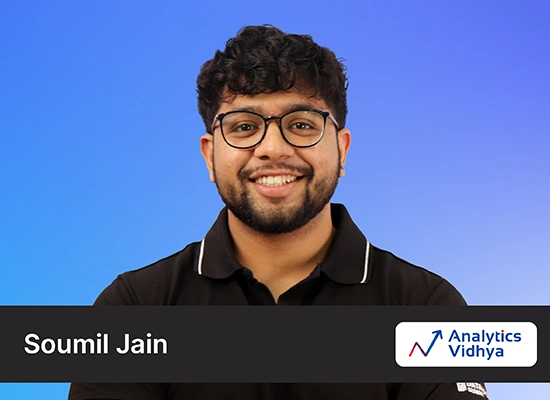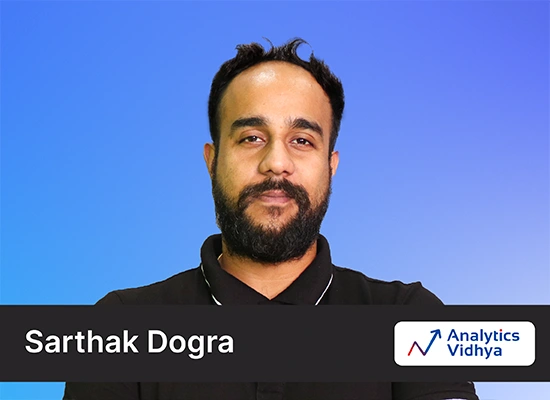What if your next favorite ad wasn’t made by humans? Welcome to the era of Generative AI! Here, algorithms are the creative minds behind eye-catching visuals and compelling campaigns. Generative AI (GenAI) is revolutionizing the media and advertising industry, turning traditional ad creation on its head. From designing visuals to personalizing customer experiences, GenAI is the new creative powerhouse for brands worldwide. This article discusses how GenAI is reshaping ad campaigns and advertising.

Table of contents
Real-World Examples of GenAI in Ad Campaigns
Let’s start by looking at some great examples of GenAI-powered ad campaigns.
- Heinz’s AI Ketchup Ad
- Coca-Cola’s AI-Generated Holiday Ads
- Mango’s AI-Generated Models
- Virgin Voyages’ ‘Jen AI’ Campaign
- Headway’s AI-Enhanced Ads
1. Heinz’s AI Ketchup Ad (2022)
What does ketchup look like? Heinz answered this question by using DALL-E 2, asking it to interpret what “ketchup” looks like visually. Despite no explicit prompts, the AI consistently generated images resembling Heinz’s iconic bottle and branding, showcasing its strong brand identity. The campaign garnered over 850 million impressions globally, with significant traction in the U.S. and Canada.
Heinz introduced a metaverse gallery displaying AI-generated artworks and released special-edition bottles featuring the generated designs. This innovative approach boosted audience interaction, particularly among younger, tech-savvy demographics. The campaign also encouraged users on social media to create their own AI-generated ketchup visuals, driving substantial engagement and participation.
2. Coca-Cola’s AI-Generated Holiday Ads (2024)
Coca-Cola revisited nostalgia with a twist by launching AI-generated Christmas commercials inspired by its classic “Holidays Are Coming” campaign. Using “Real Magic AI,” the brand created festive visuals designed to evoke tradition while embracing technological innovation.
This approach maintained the brand’s legacy while appealing to audiences curious about tech-driven creativity. However, there was a lack of warmth and emotional depth compared to traditional ads. The campaign has thus sparked a debate about AI’s role in creative advertising, raising questions about where to draw the line in creative processes. Meanwhile, critics have also pointed out quality concerns, stressing these AI-generated ads weren’t up to the mark. Hence, in my opinion, Coca-Cola could have involved human creatives in the final stages to enhance authenticity and make it more humanized.
Also Read: What is the Role of Generative AI in Personalizing Ad Content?
3. Mango’s AI-Generated Models (2024)

Mango, the global fashion brand, adopted AI-generated models to advertise its Teen line’s “Sunset Dream” collection as part of streamlining its ad creation process. The campaign involved training AI on real garment photos to generate realistic models and human editing for the final touches. This marked a significant leap in the brand’s digital transformation. AI-driven campaigns allowed Mango to cut advertising costs, accelerate timelines, and maintain editorial-quality imagery for its collections.
While innovative, the approach sparked debates about ethics and transparency. Critics argued that using AI models could lead to false advertising and contribute to job displacement in the modeling industry.
Through this ad campaign, I feel that Mango has showcased its technological leadership by integrating AI-generated models into its advertising. However, Mango could address ethical concerns by being more transparent about its AI usage and actively supporting ethical AI practices, such as retraining displaced workers.
Also Read: Generative AI in Marketing – Use Cases, Tools, and More
4. Virgin Voyages’ ‘Jen AI’ Campaign (2023)
Virgin Voyages revolutionized its marketing strategy by launching “Jen AI,” an AI-powered personalization tool created in collaboration with Jennifer Lopez. This initiative allowed customers to generate customized cruise invitations, blending J.Lo’s celebrity appeal with GenAI’s interactive capabilities. The campaign was innovative in creating highly personalized and engaging marketing experiences using generative AI.
Virgin Voyages’ decision to feature Jennifer Lopez as the centerpiece of their “Jen AI” campaign felt like a brilliant personal touch. It wasn’t just about using her fame—it was about connecting with her fanbase and anyone drawn to her aspirational lifestyle. It made the entire experience feel like a premium, status-driven adventure. To me, this campaign was a perfect mix of celebrity influence and innovative marketing.
5. Headway’s AI-Enhanced Ads (2024)

Ukrainian edtech startup Headway has revolutionized its advertising strategy by harnessing the power of generative AI tools like ChatGPT, MidJourney, and HeyGen. Using these tools, Headway’s AI-powered campaigns achieved an astonishing 3.3 billion impressions within the first six months of 2024. This unprecedented scale highlights how AI can amplify the reach of advertising efforts, enabling the brand to engage a massive audience globally.
Headway reported a 40% improvement in return on investment (ROI) for its video advertisements as well. This further reflects how generative AI can optimize budget allocation while elevating the creative and operational quality of campaigns.
Additionally, the company leveraged AI to boost creativity and efficiency. By automating the generation of visuals, scripts, and video content, Headway significantly reduced production timelines and costs. This efficiency freed up resources for more experimental and high-value projects, cementing its role as a trailblazer in AI-driven marketing.
Benefits of GenAI in Ad Campaigns and Advertising
- Cost-Effectiveness: Traditional ad campaigns often require significant resources, from hiring creatives to renting locations for shoots. GenAI reduces these costs by generating high-quality visuals, scripts, and even audio without the need for physical production.
- Speed: With GenAI, ad creation is almost instantaneous. Marketers can test multiple concepts, refine them, and launch campaigns in record time, keeping pace with fast-changing trends. Moreover, GenAI applications provide productivity boosts of
- Personalization at Scale: GenAI enables brands to craft ads tailored to specific customer segments, enhancing relevance and driving engagement. Imagine an ad that speaks directly to your preferences based on your browsing habits – GenAI can make this possible.
- Unbounded Creativity: GenAI tools like DALL-E 2 and MidJourney allow creators to produce visuals and concepts that push the boundaries of imagination, delivering content that captivates audiences.
Applications of GenAI in Ad Campaigns
- Visual Content Creation: Tools like DALL-E and MidJourney generate unique and high-quality images, eliminating the need for expensive photo shoots.
- Video Production: Platforms like HeyGen and Runway simplify video ad creation by generating lifelike animations and visuals, making even small businesses capable of high-quality productions.
- Copywriting: GenAI-powered tools like ChatGPT craft persuasive ad copy, slogans, and taglines that resonate with audiences.
- Interactive Experiences: Brands are using GenAI to create immersive and personalized ad experiences, such as customized video messages or interactive storytelling.
- Predictive Analytics: GenAI helps predict customer behavior, enabling brands to fine-tune ad placements and messaging for maximum impact.
Conclusion
Generative AI is not just reshaping advertising; it’s redefining the boundaries of creativity and efficiency in the industry. Campaigns by brands like Heinz, Coca-Cola, Mango, Virgin Voyages, and Headway showcase the immense potential of AI to captivate audiences. They also show how generative AI helps reduce costs and deliver hyper-personalized experiences.
Generative AI isn’t just a fleeting trend—it’s a paradigm shift. The question is no longer whether brands should adopt this technology but rather how they can do so responsibly and effectively. The future of advertising lies at this intersection of technology, creativity, and ethics—a place where groundbreaking possibilities meet profound challenges. How brands navigate this landscape will define their success and role in shaping the next chapter of advertising.
Frequently Asked Questions
A. Generative AI advertising uses AI models to create personalized ad content tailored to target audiences, such as text, images, or videos. It automates ad production, leveraging customer data to optimize messaging, designs, and formats, ultimately enhancing engagement and conversions while reducing creative costs and time.
A. Coca-Cola’s Create Real Magic (2023) is the most successful generative AI ad campaign. It invited users to co-create artwork using AI tools like GPT-4 and DALL·E. Blending iconic brand elements with cutting-edge AI, it boosted engagement, showcased innovation, and set a benchmark for AI-driven creativity in advertising.
A. PopularGen AI-based ad generators include Jasper AI and AdCreative.ai. AdCreative.ai stands out for its ability to create high-quality, platform-specific ad content quickly, integrating analytics for performance insights. It supports image and text creation, making it a favorite for marketers seeking efficiency and innovation.
A. To generate ads using Generative AI, choose a tool like AdCreative.ai or Jasper AI. Input brand details, target audience, and objectives. Customize templates, select the desired format, and let the AI generate optimized ad content. Analyze outputs, adjust if needed, and deploy ads on desired platforms.





